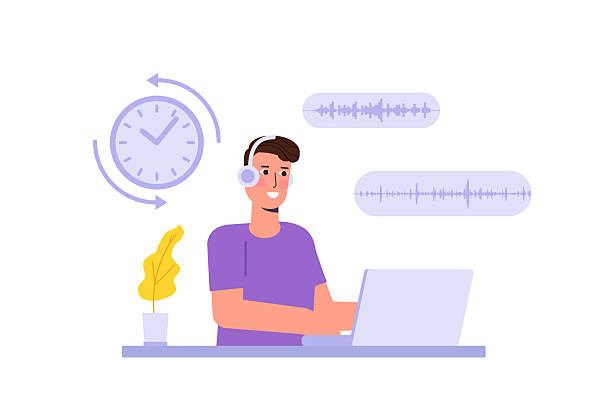For aspiring Chartered Accountants, mastering the 10 study habits of high-scoring CA students can be the game-changer in conquering the notoriously tough CA exams. These habits, honed by top performers, are practical, actionable, and designed to maximize efficiency and retention. This article dives deep into the strategies that set high achievers apart, offering a roadmap for CA students to elevate their preparation. For a broader perspective on excelling in your CA journey, check out How to Ace Your CA Exams, which covers comprehensive strategies for tackling the entire CA curriculum with confidence.
Why 10 Study Habits Matter for CA Success
The CA exams are a marathon, not a sprint. High-scoring CA students don’t just study harder—they study smarter. Their habits are rooted in discipline, strategy, and adaptability, allowing them to navigate the vast syllabus with precision. By adopting these 10 study habits, you’re not just preparing for an exam; you’re building a foundation for long-term success in the accounting world. Let’s unpack these habits and see how they can transform your approach.

Habit 1: Crafting a Realistic Study Schedule
Top CA students live by structured schedules. They don’t cram or wing it. Instead, they break the syllabus into manageable chunks, allocating time for each subject based on its weight and difficulty. For example, a student might dedicate 3 hours daily to Financial Reporting while reserving an hour for lighter topics like Business Laws. Tools like Knowsia’s Questions Bank help by providing structured practice, ensuring every topic gets covered.
The key? Realism. Overloading your schedule leads to burnout, so high scorers build in buffer time for unexpected delays. They also review their progress weekly, tweaking the plan as needed. Try this: map out your week, prioritize tough topics early in the day when your mind’s fresh, and stick to it like glue.
Habit 2: Mastering Active Recall for Retention
Active recall is the secret sauce of high-scoring CA students. Instead of passively rereading notes, they quiz themselves to reinforce concepts. This could mean tackling past papers from Knowsia’s Past Questions or creating flashcards for key auditing standards. By forcing their brains to retrieve information, they strengthen memory pathways, making exam-day recall a breeze.
To implement this, after studying a topic like taxation, close your book and write down everything you remember. Check for gaps, then revisit those areas. It’s grueling at first, but it’s like lifting weights for your brain—each rep makes you stronger.
Habit 3: Prioritizing Conceptual Understanding Over Rote Learning

CA exams test understanding, not just memorization. High achievers focus on grasping the “why” behind concepts, whether it’s the logic of cost accounting or the principles of financial management. They use real-world examples to cement their knowledge, like analyzing a company’s balance sheet to understand ratio analysis.
Instead of memorizing formulas, ask yourself: Why does this formula work? Break it down. If you’re stuck, platforms like Knowsia offer expert-led content that explains complex topics in digestible ways. This habit ensures you can tackle tricky, application-based questions with confidence.
Habit 4: Leveraging Group Study for Diverse Perspectives
Studying alone has its perks, but top CA students know the value of group study. They form small, focused groups to discuss topics like strategic management or indirect taxes. These sessions spark debates, clarify doubts, and expose blind spots. For instance, one student might explain a tricky GST concept in a way that clicks for everyone.
To make group study work, set clear goals for each session and keep it distraction-free. Platforms like Knowsia’s community features let you connect with peers, share insights, and even teach what you know, reinforcing your own understanding while helping others.
Habit 5: Regular Practice with Mock Tests
Mock tests are non-negotiable for high scorers. They simulate exam conditions, build stamina, and highlight weak areas. Top students regularly attempt full-length mock tests, timing themselves to mimic the real deal. Resources like Knowsia’s practice tools provide a steady stream of exam-style questions to keep you sharp.
After each test, analyze your mistakes. Did you misinterpret a question on corporate law? Did time run out during auditing? Use these insights to fine-tune your strategy. Over time, you’ll spot patterns and develop instincts for what examiners want.
Habit 6: Staying Consistent with Daily Reviews
Consistency trumps intensity. High-scoring CA students review daily, even if it’s just 20 minutes recapping key points. This habit prevents forgetting crucial details, especially in subjects like Advanced Accounting, where concepts build on each other. They use techniques like the Feynman Method—explaining concepts in simple terms—to ensure they’ve truly grasped the material.
Try this: at the end of each day, jot down three key takeaways from your study session. If you can’t explain them clearly, revisit the topic. Knowsia’s AI-powered tools can generate quick summaries to streamline this process.
Habit 7: Balancing Study with Well-Being

Burnout is the enemy of success. Top CA students prioritize mental and physical health, knowing that a foggy mind can’t tackle complex problems. They schedule short breaks every 90 minutes to stretch, hydrate, or take a quick walk. Some practice mindfulness to manage exam stress, while others hit the gym to boost focus.
Sleep is non-negotiable—7 to 8 hours nightly keeps their brains sharp. They also limit caffeine and junk food, opting for balanced meals to fuel long study sessions. Incorporate this habit by setting boundaries: no studying past 10 p.m., and always carve out time for self-care.
Habit 8: Using Technology to Streamline Learning
High scorers embrace technology to supercharge their prep. Apps like Knowsia’s platform offer AI-driven insights, practice questions, and progress tracking, saving hours of manual work. For example, instead of flipping through textbooks for auditing standards, they use digital tools to access concise notes and quizzes on the go.
Experiment with apps that suit your style—whether it’s Notion for organizing notes or Anki for spaced repetition. The goal? Work smarter, not harder. Technology should simplify your process, not overwhelm it.
Habit 9: Seeking Feedback and Mentorship

No one succeeds alone. Top CA students actively seek feedback from mentors, teachers, or peers. They share their answers with study groups or use platforms like Knowsia’s mentorship tools to connect with experts who can spot flaws in their approach. For instance, a mentor might point out that your tax computation lacks clarity, saving you marks in the exam.
Don’t shy away from constructive criticism—it’s your fastest path to improvement. Reach out to a senior CA or tutor for guidance, and act on their advice to refine your skills.
Habit 10: Staying Motivated with Clear Goals
Finally, high-scoring CA students keep their eyes on the prize. They set clear, long-term goals—like becoming a partner at a Big Four firm or starting their own practice—to stay driven. Short-term goals, like mastering a chapter of Financial Management in a week, keep them on track. They celebrate small wins, like acing a mock test, to maintain momentum.
Visualize your success. Pin a motivational quote on your desk or track your progress on a vision board. Knowsia’s platform lets you set milestones and earn rewards for hitting them, turning hard work into a game you can win.
Putting It All Together
These 10 study habits aren’t just tips—they’re a blueprint for CA success. From crafting schedules to embracing tech, high-scoring CA students blend discipline with strategy to conquer the exams. Start small: pick one or two habits, like active recall or mock tests, and build from there. With consistency and the right tools, like those offered by Knowsia, you’ll not only pass but excel. So, grab your study planner, fire up your motivation, and let these habits pave the way to your CA dreams.

